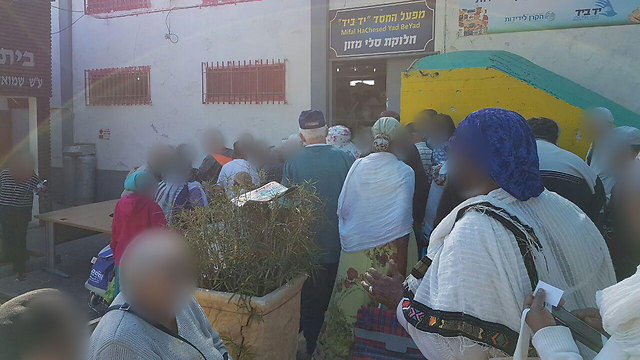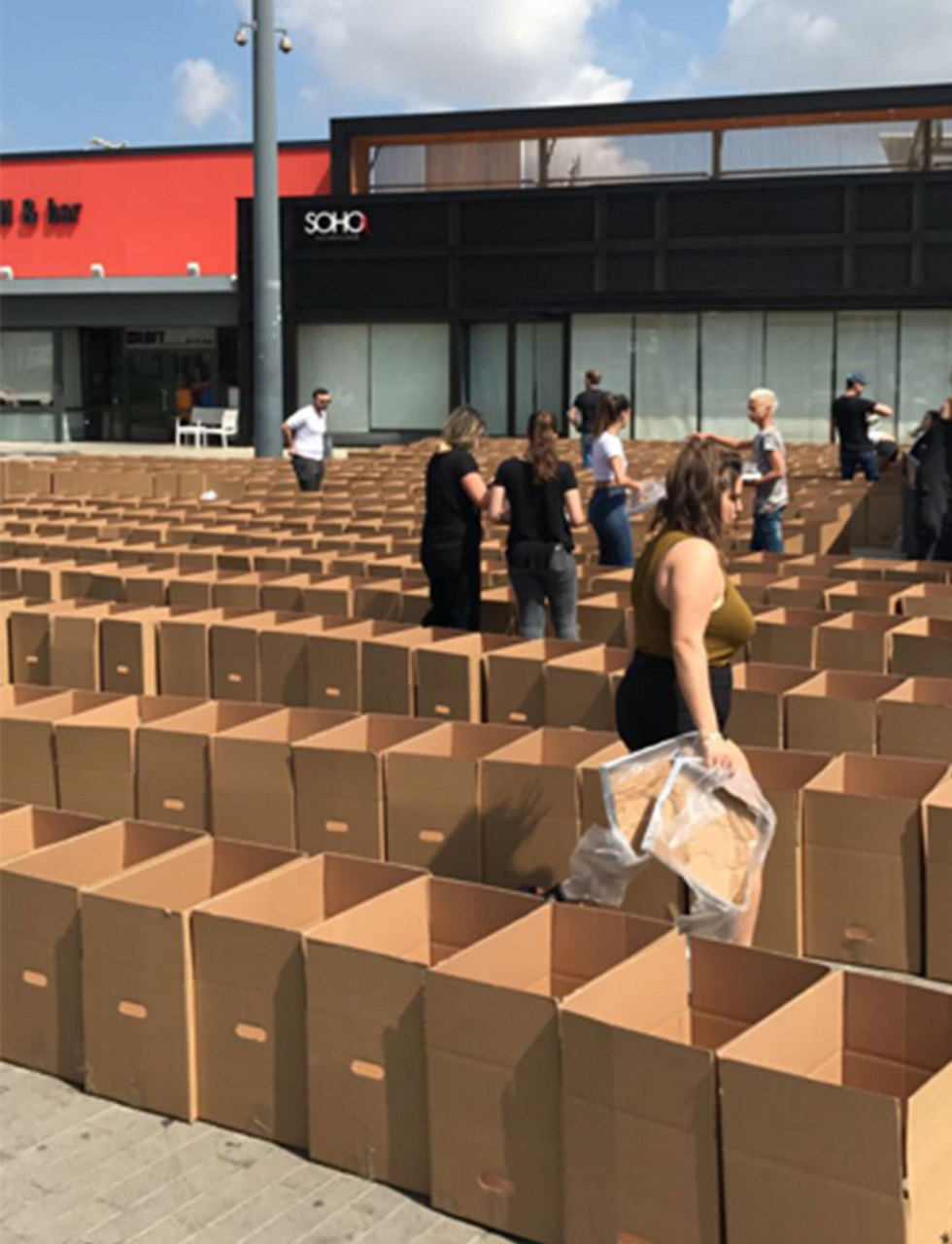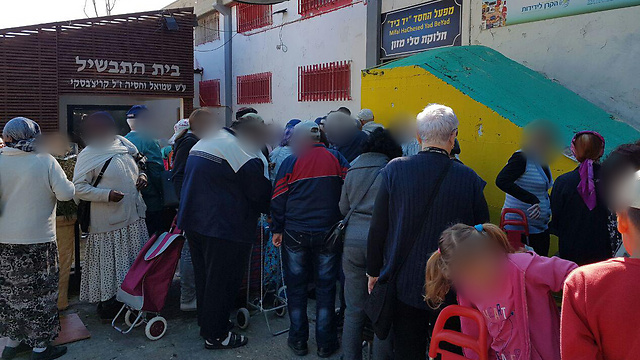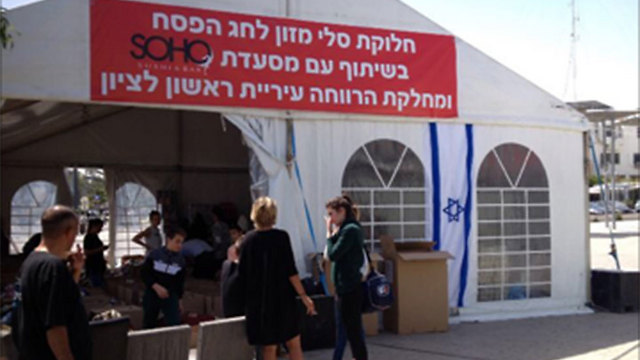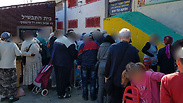
Food packages for needy Israelis to get through Passover
With the festival soon approaching and a traditional large meal anticipated on Monday night, many Israelis, particularly immigrants and the elderly, rely on donations from private organizations to obtain the necessary food for festivities.
On Tuesday, hundreds of needy people arrived at the distribution center of the Yad BeYad (“Hand in Hand”) association in Lod to receive food boxes for Passover.
Large numbers of senior citizens and immigrants were sent by the welfare departments in various localities in the center of the country to stand in line for the holiday groceries.
Mazal, 55, a mother of three who works part-time as a caregiver to the elderly, said, “I don’t have enough money to shop for Passover, and I need help. My paycheck just isn’t enough.”
Svetlana, a 52-year-old widow and mother of two children, one of whom is disabled, added, “We live by the donations we receive, and I can’t keep up with the bills, the rent and food. I don’t know what I would do without help. The money that we receive for disability benefits go to medications… We have no help from any other source.”
In the last welfare budget, the government increased income support payments to poor senior citizens in the amount of hundreds of shekels. However, welfare NGOs insist that benefits to the elderly must be raised further. This is in spite of the new project of the Ministry of Social Affairs, in which food vouchers for about 10,000 families are distributed each month in the amount of NIS 60 million a year.
A report from the National Council for Food Security established in 2014 that more than 110,000 families in Israel need assistance at the cost of half a billion shekels a year.
Orly, a resident of Lod and a mother of five, one of whom is disabled, commented, “We barely survive during the year. If I didn’t get help here, we couldn’t celebrate Passover.” According to Orly, the benefits she receives for her disabled son are insufficient: “It’s not enough for all the treatments and costs. Here, we get two boxes of food, and it helps us get through the holiday.”
According to a study by the Taub Center for Social Policy Studies in Israel published in November 2016, only about half of the recommendations recommended by the Committee to Combat Poverty were adopted by the government in full or in part, and those that were only budgeted about a quarter of the recommended amount.
“The war on poverty is not at the top of the government’s priorities,” said Rabbi Yaakov Globerman, director of Yad BeYad, whose volunteers distributed hundreds of food packages for the holiday.
“In the war against poverty, we have to fight like in a regular war, but the government doesn’t hold serious discussions about increasing budgets. There are more than 200,000 families living in food insecurity, and the programs that are being talked about are simply not enough.”
According to Rabbi Yechiel Eckstein, president of the International Fellowship of Christians and Jews that funds Yad BeYad, this is a direct result of the government’s policy: “Poverty in Israel is not the plague of Egypt or the decree of fate. It’s the result of a drastic reduction in social spending and the neglect of the weak in society.”
Eckstein added that the trend could be reversed if the government implemented the committee’s recommendations “and starts a focused and budgeted plan to reduce poverty. Until then, unfortunately, we will have to continue relying on the support of Israelis and foreign residents who care.”
(Translated and edited by J. Herzog)










